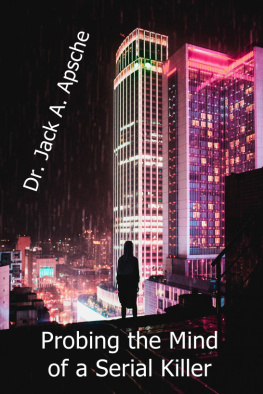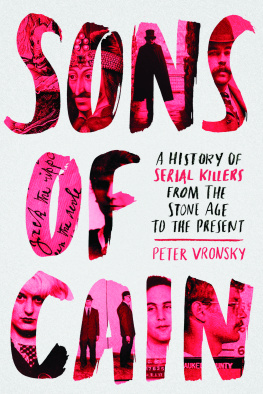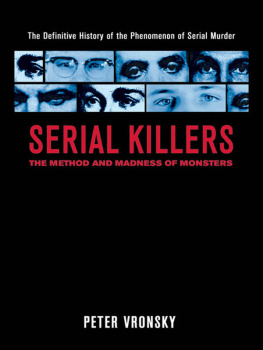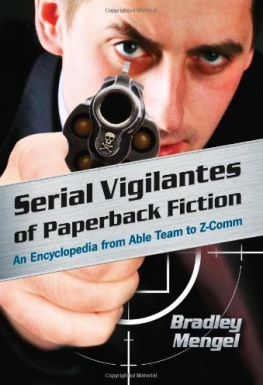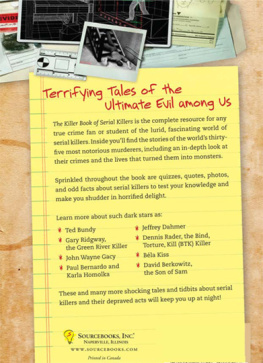Table of Contents
How to Write Serial Fiction & Be Ready to Publish In Less Than 24 Hours C. R. Myers Copyright White Bird Publications, LLC P.O Box 586 Diana, Texas 75640 www.whitebirdpublications.com The opinions expressed in this manuscript are solely the opinions of the author and do not represent the opinions or thoughts of the publisher. The author has represented and warrant full ownership and/or legal right to publish all the material in this book. Copyright2013 by C. R.
Myers All rights reserved. No part of this book may be reproduced or transmitted in any form or by any electronic or mechanical means, including photocopying, recording or by any information storage and retrieval system, without the written permission of the author, except where permitted by law. LCCN: 2013943638 ISBN: 978-1-937690-40-3 PRINTED IN THE UNITED STATES OF AMERICA. If you purchased this book without a cover, you should be aware that this book is stolen property. It was reported as unsold and destroyed to the publisher and neither the author nor the publisher has received any payment for this stripped book. Legal Notices While all attempts have been make to verify information provided in this publication, neither the Author nor the Publishers assumes any responsibility for errors, omissions or contradictory interpretation of the subject matter herein.
This book displays best on Kindle Fire or Kindle PC (free app) What Our Readers Have to Say How to Write Serial Fiction goes through clearly and succinctly everything you need to publish your serial fiction on Amazon, Barnes and Noble and other outlets. There is a wealth of information in this book and I wish it had been around when I first self-published my book series. There are a number of intricate steps to serial writing, and C. R. Myers takes you through everything you need to know to help your first serial be a resounding success. Michael Ward Self-published author with 50 titles on Amazon and Barnes and Noble Amazons Michael Ward Page http://www.amazon.com/-/e/B007A550QM Writing serial fiction is not as easy as it sounds.
It's not just writing a book and breaking it up by chapters. From hooking the reader with each episode, story arc, and consistent characterization to keeping the reader coming back for more, this is the resource I wish I'd had when I started writing serial fiction. Jean Lauzier http://www.jeanlauzier.com This is such great information. You get a step-by-step guideline on how to write a serial novel. Cat makes it look easy. Maybe if I had had the information in this book when I was writing The Cabin, it would have made it easier.
Thanks for all your work. Evelyn M. Byrne http://www.evelynmbyrne.com How to Write Serial Fiction...is awesome. I really like it because the instructions are clear and concise. The only thing I'd change is the title. I'd call it, The Dummies Guide to Writing Serial Fiction.
Catherine Sellers http://www.catherinesellers.com Introduction A Few Words from the Author Id like to introduce myself. I write mystery and suspense under the name, C. R. Myers. I had completed my first three novels before entering the world of the serial novel. Classically trained in literature I had read Charles Dickenss The Pickwick Papers, Wilkie Collinss The Moonstone, Mark Twains Huckleberry Finn, as well as many other novels considered classic which began their life as serial novels, a fact that made little impression on me at the time.
To me, serial novels were those light mysteries or equally light romances in the back of magazines Id read growing up. I rediscovered serial novels on the internet quite by accident. In the middle of researching facts for my third novel, I stumbled across a fan fiction site. Before then, I had never heard of fan fiction nor had any idea such sites existed. Curious, I delved right in, and before long, I had posted my own fan fiction episodes along with everyone else. Why would a novelist, used to creating her own worlds, want to write fan fiction? First, I wanted to see what it was like.
Once I did, and the comments started coming in, I was hooked. Second, I discovered, as I discuss in the book, that writing episodes online is a type of performance art. Writing before a built-in audience is exciting and satisfying. I learned how to structure my episodes with a beginning punch to draw in my audience, and how to leave them wanting more, which is one of the primary goals in serial fiction. The downside of writing fanfic is that you are writing in someone elses world, using characters and settings you do not own. I decided it was time for a change and submitted an idea for a serial novel to several newspapers and magazines.
One of the newspapers hired me to write a novel divided into weekly episodes. The novella was such a success the paper hired me to write three more. Following that, a newsprint magazine hired me to run the same four novellas. Earlier this year I started writing The Hidden , a serial novel sold in episodes through Amazon. I have completed the first novella and am pleased with the response Ive received. So, why am I writing this book? Serial novels have recently experienced a comeback and more and more writers are experimenting with the format.
This is good, but what I have discovered is that many writers wanting to write serial fiction have little understanding of the basic elements involved and how serial fiction differs from writing a completed novel. I was appalled to discover an author advertising that he would cut up your novel to use as a serial. Serial fiction is not cut up novels, and episodes are not chapters. Also, different types of serial fiction require different criteria. I try to cover all of this in this book so that even the experienced writer might find something new and of value. This is my first non-fiction book, and I have incorporated whitespace in the format because unlike fiction, a reader doesnt step into the story and the writing seems to disappear.
Recent studies have linked whitespace to fact retention in technical writing. Whitespace focuses the readers attention and allows the reader to quickly absorb what is being said. As you read, your eyes must jump from left to right and then down to the next sentence. Paragraph indention helps maintain a fluid motion and invites the reader to continue reading. Eye psychology has determined that the use of whitespace and indention is more appealing to the human eye and less tiring. R. R.
Myers, a native Texan, received her MA from the University of Texas at Tyler. As a teacher and professional speaker, she designed and implemented her own creative writing course as well as writing college sketches. Today, Ms Myers works full-time as a free-lance journalist and best-selling novelist. The Joy of Writing A well-crafted novel Writing Should be Fun I am pleased with the great response Ive received with the release of my two newest books, How to Write Serial Fiction and 10K a Day The Secret of Quality Speed Writing. The overwhelming support from my friends and fellow writers has meant the world to me, and I thank you. Writing should be fun, not a chore.
When I wrote these books, I wanted to simplify fifteen years of learning into a concrete step-by-step guide that even a beginning writer could use and become successful. The benefits of speed and freeze framing will prove themselves invaluable to the serious writer. As a full-time writer, I find my writing time divided between current writing projects, completed projectsawaiting edits, and marketing. That, of course, doesnt take into account speaking engagements, signings, conferences, and workshops. There is never enough time. Speed writing and freeze framing address the time issue specifically with workable solutions.
Would you rather write two books a year or ten? (without sacrificing either word count or quality) I think wed all like to increase our productivity. I know I would. The 10K a Day Plan I have in place, took me years to develop and perfect. Did I set out to develop a writing plan? No, absolutely not. I just wrote, and as time passed, I developed a routine, keeping elements which worked, and discarding those that didnt, until I realized Id inadvertently developed a plan of writing. Did I always follow the plan? No.


